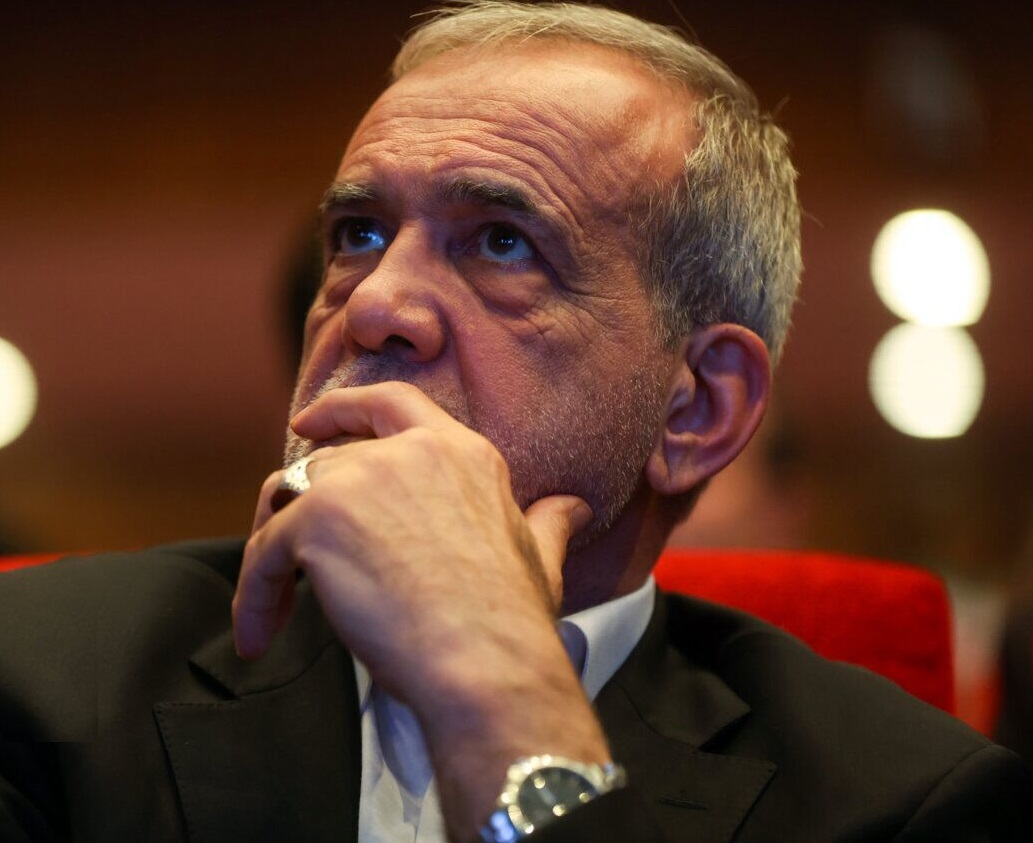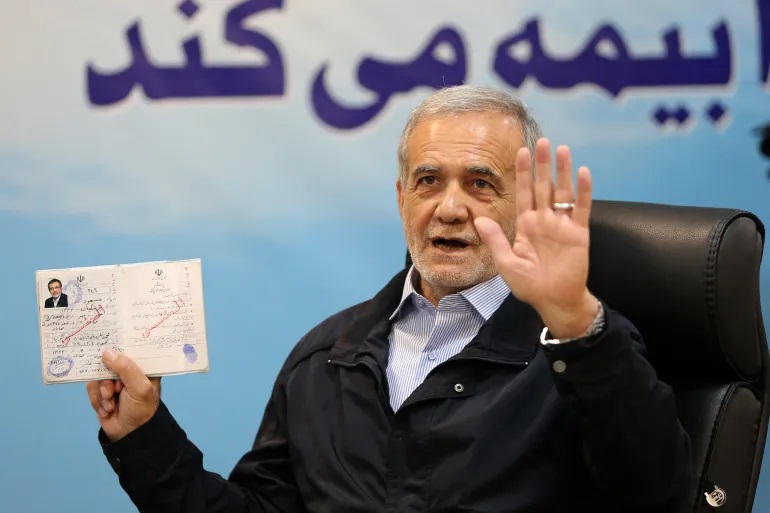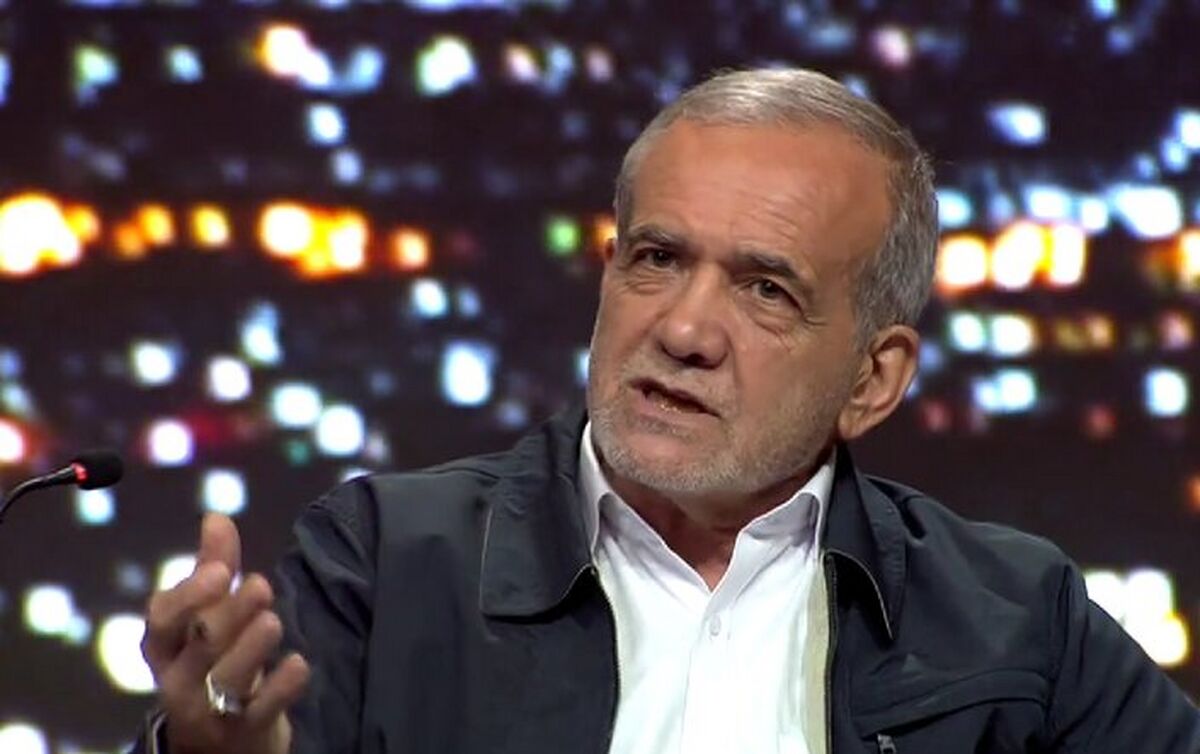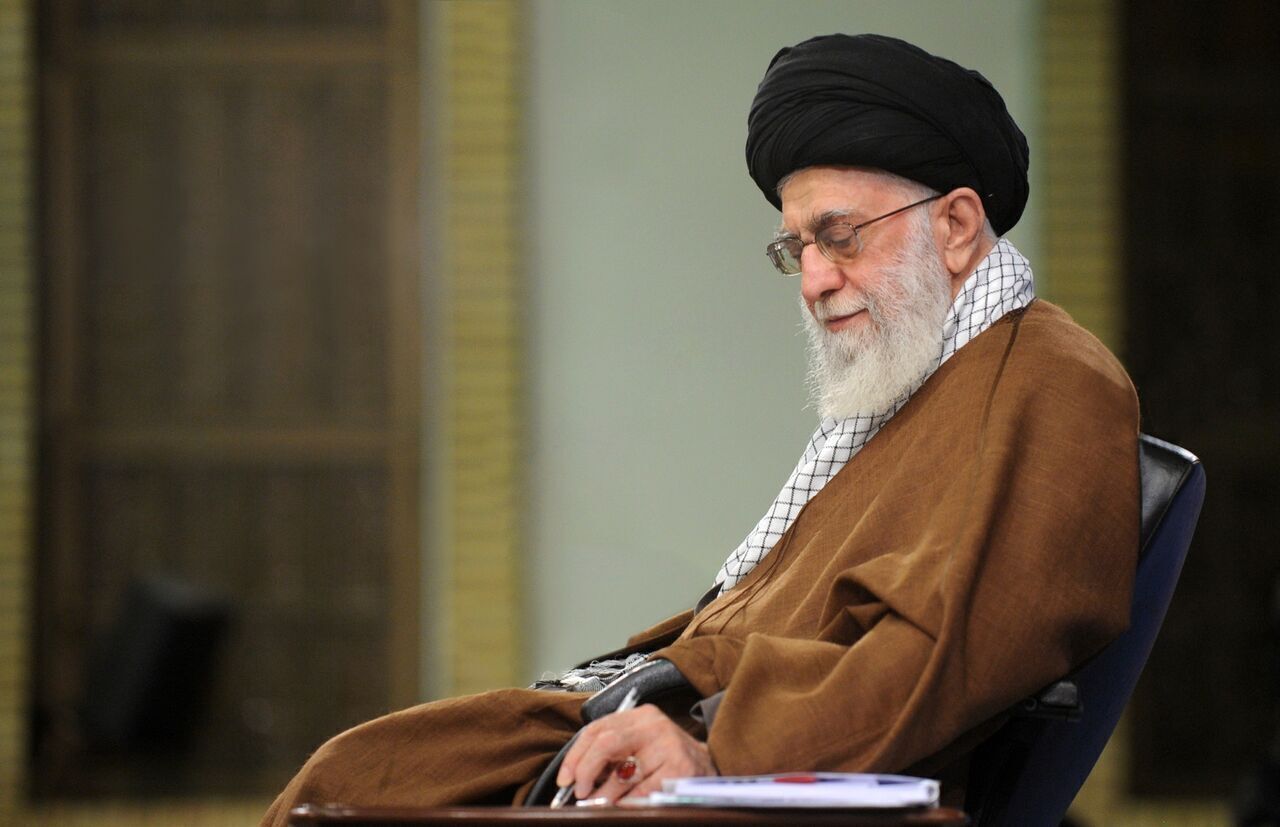
SANA'A July 07. 2024 (Saba) - After holding two rounds of direct voting in the presidential elections. The Iranian Interior Ministry announced on Saturday morning that reformist Massoud Bezeshkian won the presidency of the country, beating conservative candidate Saeed Jalili.
The ministry said in a statement that Bzeshkian won the second round of the Iranian presidential elections after winning 16 million and 384 thousand and 403 votes with 53.6 percent of the votes.
In turn, the spokesman for the Iranian Election Commission, Mohsen Eslami, announced this morning the eighth and final outcome of the results of the second round of the Iranian presidential elections in its 14th session.
According to Eslami, Massoud Bezshkian received 16,384,403 votes, while Saeed Jalili received 13,538,179 votes, after counting 30,530,157 votes from polling stations in the country and abroad.
The first round of Iran's presidential election took place on Friday (June 28th) between the four candidates, Saeed Jalili, Massoud Bizeshkian, Mohammad Bagher Qalibaf and Mostafa Pourmohammadi, none of whom managed to win an absolute majority, necessitating a second round between the two candidates with the highest number of votes, Jalili and Bezeshkian.
Iran's electoral commission has invited about 61 million voters to participate in the second round of the presidential election to resolve the competition between Jalili and Bezeshkian, and the reformist candidate had advanced over his conservative rival in the first round on June 28 to choose the successor of the late President Ebrahim Raisi, who was killed in a helicopter crash last May.
The first round saw an unprecedented low turnout, with more than 60 percent of voters abstaining from voting in early elections to choose a president, while turnout in the second round of the presidential election was 49.8 percent.
The second round of Iran's presidential election took place on Friday across the country and in nearly 100 countries around the world to elect Iran's ninth president in the Islamic Republic from among candidates Saeed Jalili and Massoud Bezeshkian.
The Iranian president is the second-in-command of the power structure after Supreme Leader Khamenei, who has the final say on all strategic matters, and is also the commander-in-chief of Iran's armed forces.
Iran's President-elect Massoud Bezeshkian has received congratulatory messages from most presidents, leaders and leaders of countries on the occasion of his victory in the Iranian presidential elections.
In his first statement after announcing his victory on Saturday, President Bizshkian stressed that he would "extend a hand of friendship to all." In a statement to state television, he said: "We will extend the hand of friendship to all, we are all the people of this country. We have to use everyone for the progress of the country."
He also wrote in a post on platform X: "I extend my hand to you and I will not abandon you and I also ask you to be by my side." "We have a difficult road ahead and can only be overcome with your sympathy, trust and cooperation."
For his part, Iranian Supreme Leader Ali Khamenei said: "I recommend the president-elect to continue the path of the late president and work for the development of the country and the welfare of the people." He added that the people felt responsible, created an enthusiastic scene and recorded wide participation in the two rounds of elections.
For his part, Iranian Interior Minister Ahmad Vahidi said today that the elections were held with accuracy, transparency and clarity, and at a high level of integrity, and the people chose Massoud Bezshkian, the ninth president of the republic.
Videos on social media earlier showed supporters of President Bzeshkian celebrating in the streets in a number of cities, firing their cars to cheer for his victory, and residents in the northwestern city of Orumeh, Bezshkian's hometown, distributed sweets in the streets.
Observers have ruled out any major policy shift over the Iran's nuclear program or a change in support for allies, but he manages the day-to-day tasks of the government and could have an impact on his country's approach to foreign and domestic policy.
Although the election will have little impact on Iran policies, the president will be closely involved in choosing the successor to the 85-year-old Supreme Leader Ali Khamenei, who issues all decisions on top state affairs.
Who is President Massoud Bezeshkian?
Masoud Bezshkian is an Iranian reformist doctor and politician born in 1954 in the city of Mahabad, the western Azerbaijan province, northeast of Iran, from an Azeri father and a Kurdish mother, he finished his primary education in Mahabad and then joined the Institute of Agriculture in the city of Urumieh and obtained a diploma in the field of food industries there.
He performed military service in the border city of Zabul in Sistan and Baluchestan province in 1973, during which time he became interested in medical sciences and obtained his second degree in experimental sciences and was accepted into the medical field at the Tabriz University of Medical Sciences in 1975.
He completed his medical course in 1985 and began working at medical school as a physiology teacher.
In 1990 he obtained his specialization in general surgery from Tabriz University of Medical Sciences, then in 1993 he obtained a specialization in cardiac surgery from Iran University of Medical Sciences in Tehran, and was appointed to the Shahid Madani Heart Hospital in Tabriz, where he later became its president.
He served as editor-in-chief of the Journal of Cardiovascular and Thoracic Research, published by the Cardiovascular Research Center at Tabriz University of Medical Sciences.
With the start of the Iran-Iraq war, Bizshkian was responsible for sending medical teams to the frontlines, and was active in many operations as a fighter and a doctor.
In 1994 he was appointed President of the Tabriz University of Medical Sciences, and his presidency lasted until 2000.
Bizeshkian served as Deputy Minister of Health at the Ministry of Health, Treatment and Medical Education Mohamed Farhadi for six months in the first government of Mr. Mohamed Khatami. Then, in his second term as President of Mr. Mohamed Khatami, he served as Minister of Health, Treatment and Medical Education from 2001 to 2005, and after a period he was questioned by Parliament, and then left his post.
Since 2008, Bzeshkian has represented Tabriz in the Islamic Consultative Assembly of Iran. In 2016, he was elected a deputy to the Islamic Consultative Assembly of Iran in its tenth session, which was chaired by Ali Larijani.
Bizshkian had previously registered twice to run for the presidential elections in the 11th (2013) and 13th (2021) rounds, but in 2013, before the names of the qualifiers were announced, he withdrew in favor of Akbar Hashemi Rafsanjani, while in 2021 he did not receive the approval of the Guardian Council because he was not eligible to do so.
For the third time, on June 1, 2024, he ran for the 14th Iranian presidential elections and his name was announced as one of the six candidates qualified by the Guardian Council for the 14th presidential elections.
He entered the competition for the 14th presidential elections with the slogan "For Iran" and announced that one of his most important plans and presidential program is to work to achieve "justice" and "unity and cohesion" in society and implement the provisions of the "Seventh Development Plan".
He promised during the presidential election campaign that if he wins the election, he will form a committee to monitor the work of the government, which will serve as a bridge between the people and the government.
Bzeshkian won the second round of Iran's presidential election on Friday to become the ninth president of the Islamic Republic of Iran.
E.M
resource : Saba


